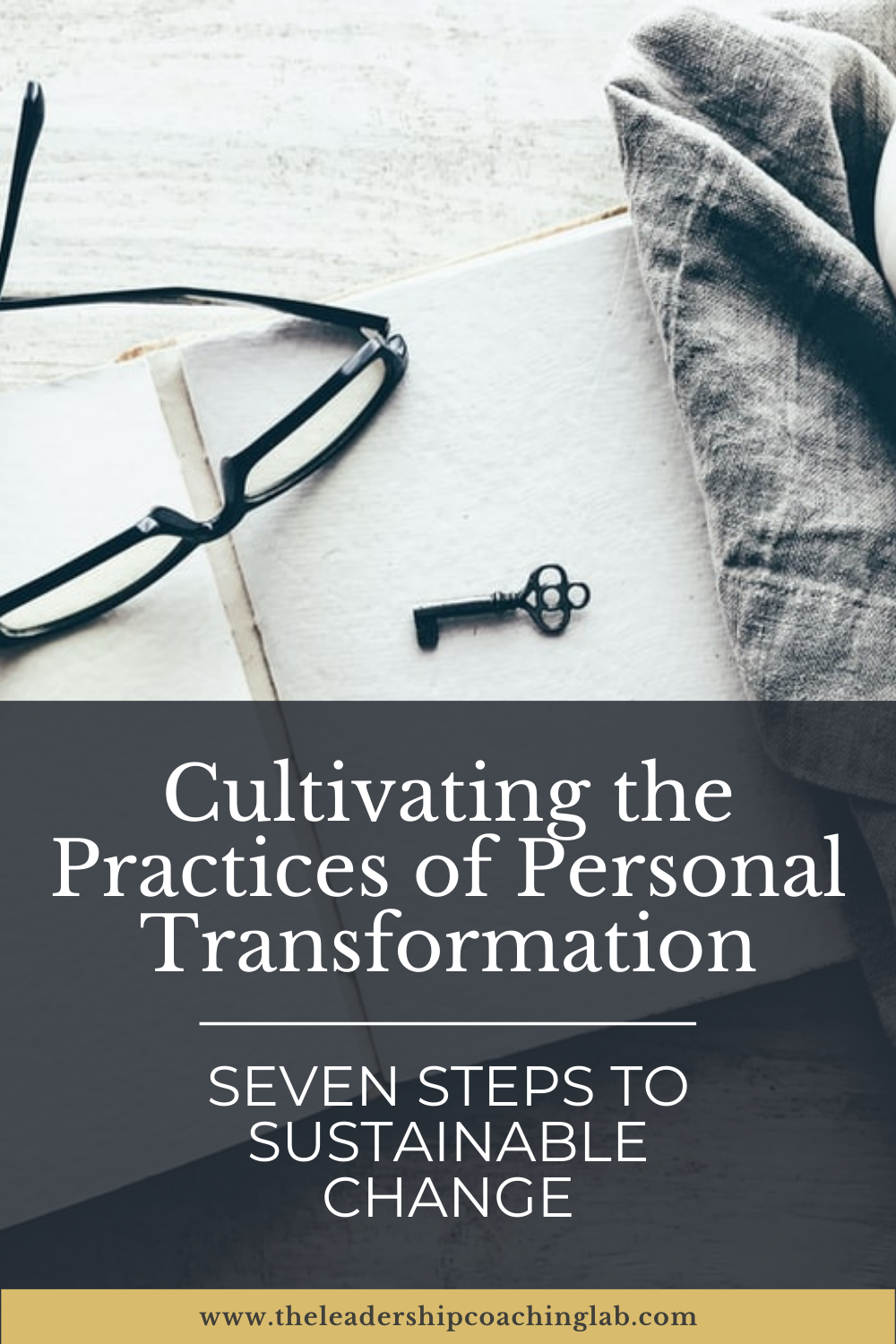Discover New Perspective [Step 5]
What insights will inform your growth strategies?
Seven Steps to Sustainable Change: A Blog Series to Support Healthy Change & Leadership Development
I clearly remember the critical season when my small family of four was facing a significant transition: job changes were on the horizon, combined with a potential cross-country move. Our goals were clear (get new jobs, move, and sell our house), but how to achieve those goals was less clear. Daunted by this complex series of decisions to navigate, and the implications of each, I committed to intentionally consider different strategies for life planning and decision-making. As a result, I learned different ways of thinking about our choices, which brought energy, strength, and the ability to consider creative routes to achieve our goals.
If you are eager for progress, it may seem natural to launch into a specific action plan directly after you have identified your growth gaps and goals. However, what if there are multiple strategies that could lead to the fulfillment of your vision?
What new perspective could empower your plan for growth?
“We reinvent ourselves by changing our perspective.”
Find the Bright Spots
In their book Switch: How to Change When Change is Hard, Chip and Dan Heath discuss the importance of identifying “bright spots,” which are successful change efforts that you can study and learn from. The first way to identify a bright spot is to consider when, if ever, you were successful with the change you are seeking to make.
We may have had small glimpses of success in the past that give us clues to valuable growth strategies:
When were you successful in the past?
What contributed to your success?
“These flashes of success – these bright spots – can illuminate the road map for action and spark the hope that change is possible.
”
The second way to identify a bright spot is to find others who have accomplished a similar goal and learn from their experiences - friends or mentors, individuals in your network who can teach you something new, or influencers who have published blogs, books, or podcasts.
Who do you know who has achieved success in your growth priorities? Who has experienced a similar life situation that you are navigating?
Seeking wisdom from others is a process that requires us to practice humility, as we posture ourselves as learners and demonstrate vulnerability in sharing our desire for growth. We must claim the confidence to connect with others who offer resources that we need to grow.
In addition to seeking support from your community, become a devoted student of the change process you seek to implement. How can you keep your mind fresh with insights from various sources? Which of these practical steps will give you access to new ideas?
· Draw from the wisdom of experts, from relevant TED Talks or podcasts, blogs, or books.
· Use Google Scholar to identify a few research studies that yield rich insights.
· Create a catalogue of resources to review and revisit.
Try Some Brainstorming
Sometimes when we plan strategies to achieve our goals, we may instantly eliminate options that do not seem feasible, or we may quickly choose the most efficient option. As a result we may have a limiting plan, or be too attached to one solution. Joining a gym is an obvious choice if your goal is to get in shape, but it is only one of many viable strategies that deserve exploration.
Brainstorming may bring some creative energy and allow us to see more strategies are possible than we originally believed. Consider these two brainstorming exercises that can lead to new ideas and insights:
Commit some time to generating several ideas. Tom Kelley, Design Thinking guru and author of Creative Confidence, encourages “what if” questions to come up with multiple possibilities.
What if I left work earlier two days a week? What would be possible?
What if I met with a mentor once a month? What growth would I see?
Intentionally propose bad ideas first. Try it! Sometimes this gets creative juices flowing faster, and sometimes you may discover that your bad ideas are not actually all that bad.
Evaluate Your Environment
Research also demonstrates that an intentionally designed environment can be a vital factor in supporting personal change. What in your current environment could be changed or tweaked to directly support your goals for growth?
For example:
If you are trying to establish an intermittent fasting routine during work hours, what will help you to eliminate the temptation to eat?
If you are an educator and want to achieve a more student-centered approach, how can you rearrange your learning space?
If you are a leader working to expand your network, how can you redesign your schedule to meet for lunch, webinars, and happy hours?
How can you design your environment to support your growth?
Coaching Inspiration
Save some of the coaching inspiration and tools you enjoyed in this blog. Follow me on Pinterest, where I curate resources for leaders, educators, and teams.
References
Heath, D., & Heath, C. (2011). Switch: How to change things when change is hard. Random House.
Kelley, T., & Kelley, D. (2013). Creative confidence: Unleashing the creative potential within us all. Currency.








